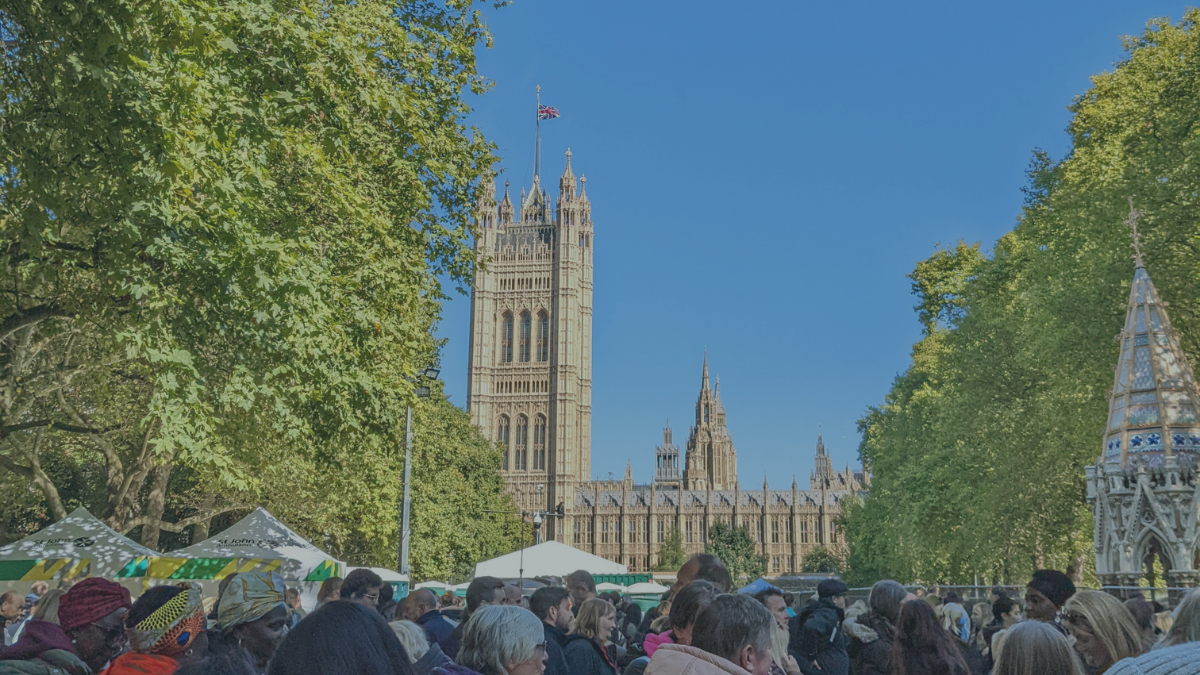When Queen Elizabeth II died, my daughter and I traveled to London and stood in line for thirteen hours to pay our respects.
We flew to London from New York, went to our hotel, showered, put a few bottles of water and snacks in a bag and headed to the beginning of the “queue” some five miles away from where the Queen lay in state in Westminster Hall.
We arrived at midnight. Hundreds of people were ahead of us. Hundreds more arriving behind us. Men and women of all ages and nationalities surrounded us. Some walked with the aid of walking sticks. Others pushed strollers with young children in them. Some came alone, others in groups.
The line snaked around the park for two hours before we set off to walk along the south bank of the River Thames. In the depths of the night we made our way towards Westminister, sometimes quickly, other times shuffling slowly. On a couple of occasions, we moved only a few feet in an hour. We sat down for only fifteen minutes during those thirteen hours, when the queue came to a complete halt.
My daughter and I huddled together in the early hours, before the sun rose, as a sharp, bitter wind whipped across from the river. We sipped water occasionally, so we could avoid leaving the line for too long or having to use the portable toilets dotted along the route too often. We wrapped our cold hands around warm paper cups filled with steaming tea at six in the morning and relished the rush of energy from the caffeine that propelled our weary bodies forward another few steps.
Eventually, we reached Westminster and, after passing through a strict security point manned by the army, we climbed the staircase into a hushed hall. From the top, we looked down on the raised platform on which stood the Queen’s coffin draped in the Royal Standard flag. Four soldiers, the Queen’s own guards, stood unmoving at each corner, their heads bowed.
“What shall we do when we get to stand in front of the coffin?” I’d asked my daughter while en route.
We had many hours to discuss how we would show our respects. “Shall we curtsy or bow?”
The answer, however, was simple.
“If I curtsy, I won’t be able to get up again,” she answered. We laughed because our legs were stiff and sore long before we reached Westminster Hall.
So, in the few moments that we had, a little more than arm’s length from the coffin, we linked hands, bowed our heads, and wiped tears from our eyes.
Queen Elizabeth II, as sovereign of Great Britain and many other countries, had served her people well. She deserved recognition.
The reign of Queen Elizabeth II had its ups and downs. There are decisions that she made that I and others question and discuss as to whether she was right or wrong.
I have to ask myself though, “How do I show respect to God who is sovereign over everything and everyone, and not just in name? How do I show reverence to God whose rule is perfect?” I invite you, in these few moments, to consider the same question.
Consider these words and then use the prayer to show God your respect and reverence.
Righteousness and justice are the foundation of your throne.
Psalm 89:14 NLT
Unfailing love and truth walk before you as attendants.
Your throne was established long ago; you are from all eternity.
Psalm 93:2
So let us come boldly to the throne of our gracious God. There we will receive his mercy, and we will find grace to help us when we need it most.
Hebrews 4:16
Pray


Hi Rachel!
I’ve been enjoying the reflections and prayers so much. The prayer of Hope from Hebrews 6:9 was particularly meaningful for a friend who is now in a much better place.
Thanks so much and be blessed!
Lynda
Lynda, I’m so glad the prayer of Hope was meaningful but sad for your loss. Rachel xx